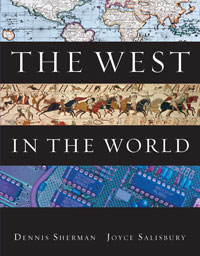1 A) the use of conscripts. B) mounted cavalry. C) long lines of infantrymen and foot soldiers. D) guns that fired with greater range and accuracy. 2 A) the Low Countries. B) Austria. C) southern France. D) the Italian city-states. 3 A) Shakespeare. B) Henry VIII. C) Thomas More. D) Thomas Cranmer. 4 A) penance. B) indulgences. C) good works. D) faith. 5 A) they called for a social revolution. B) of the printing press. C) of widespread literacy and education programs sponsored by Catholics. D) they provided justifications for doing penance. 6 A) people needed an ordained priest to perform the sacraments. B) praying to many saints increased one's chances of salvation. C) people were responsible for their own salvation. D) people needed to pray communally to attain salvation. 7 A) baptism and the Eucharist. B) marriage and baptism. C) transubstantiation and the Eucharist. D) the last rites and marriage. 8 A) resolved the peasants' war. B) declared Protestantism to be the official religion. C) reestablished Catholicism as the only religion. D) allowed princes to determine the religion of their principalities. 9 A) Philip of Hesse. B) the Peace of Augsburg. C) Thomas More. D) Erasmus. 10 A) he was a pacifist and did not want to be recruited in the wars between cantons. B) Francis I began to persecute Protestants. C) of the threat of war between Swiss cantons. D) of the persecution of Protestants when Mary took the throne. 11 A) poverty B) warfare C) the Peace of Augsburg D) missionaries 12 A) converting to Calvinism. B) imprisoning Pope Clement VII. C) cutting off the pope's authority with an act of Parliament. D) electing Thomas Cranmer pope of the Anglican Church. 13 A) with a policy of bloody repression. B) by creating a separate church. C) by issuing The Book of Common Prayer . D) with a policy of religious tolerance. 14 Complutensian Polyglot Bible published by the new university at Alcalá de HenaresA) featured Spanish and Latin translations. B) was called the Vulgate. C) was Erasmus's greatest contribution to western culture. D) compared Hebrew, Greek, and Latin versions of the text. 15 A) their spiritual discipline B) by serving as missionaries C) their emphasis on education D) their disobedience of the pope 16 A) the scriptures and tradition. B) the papacy. C) faith. D) the sacraments. 17 A) the leagues of Italian city-states B) Jews and Muslims in Spain C) religious diversity D) Protestants and Muslims 18 A) Elizabeth refused to marry him. B) Mary refused to marry him. C) Elizabeth refused to convert to Catholicism. D) Elizabeth refused to help him put down the revolt in the Netherlands. 19 A) the emperor's authority over German princes B) Bohemian independence C) the number of Protestant electors D) the number of Catholic electors 20 A) religious tolerance B) religious diversity C) balance of power D) religious choice 21 A) each German prince would define his principality as either Lutheran or Catholic. B) the Holy Roman Empire was officially declared Catholic. C) the Habsburg dynasty and the Holy Roman Empire were dissolved. D) Lutheranism replaced Catholicism as the sole protected form of religious expression in the German principalities. 22 A) that clerical corruption and ignorance were unacceptable. B) that prayers to the saints and the Virgin Mary could not help a Catholic go to heaven. C) that Purgatory did not exist. D) that faith, alone, could enable a Catholic to go to heaven.





